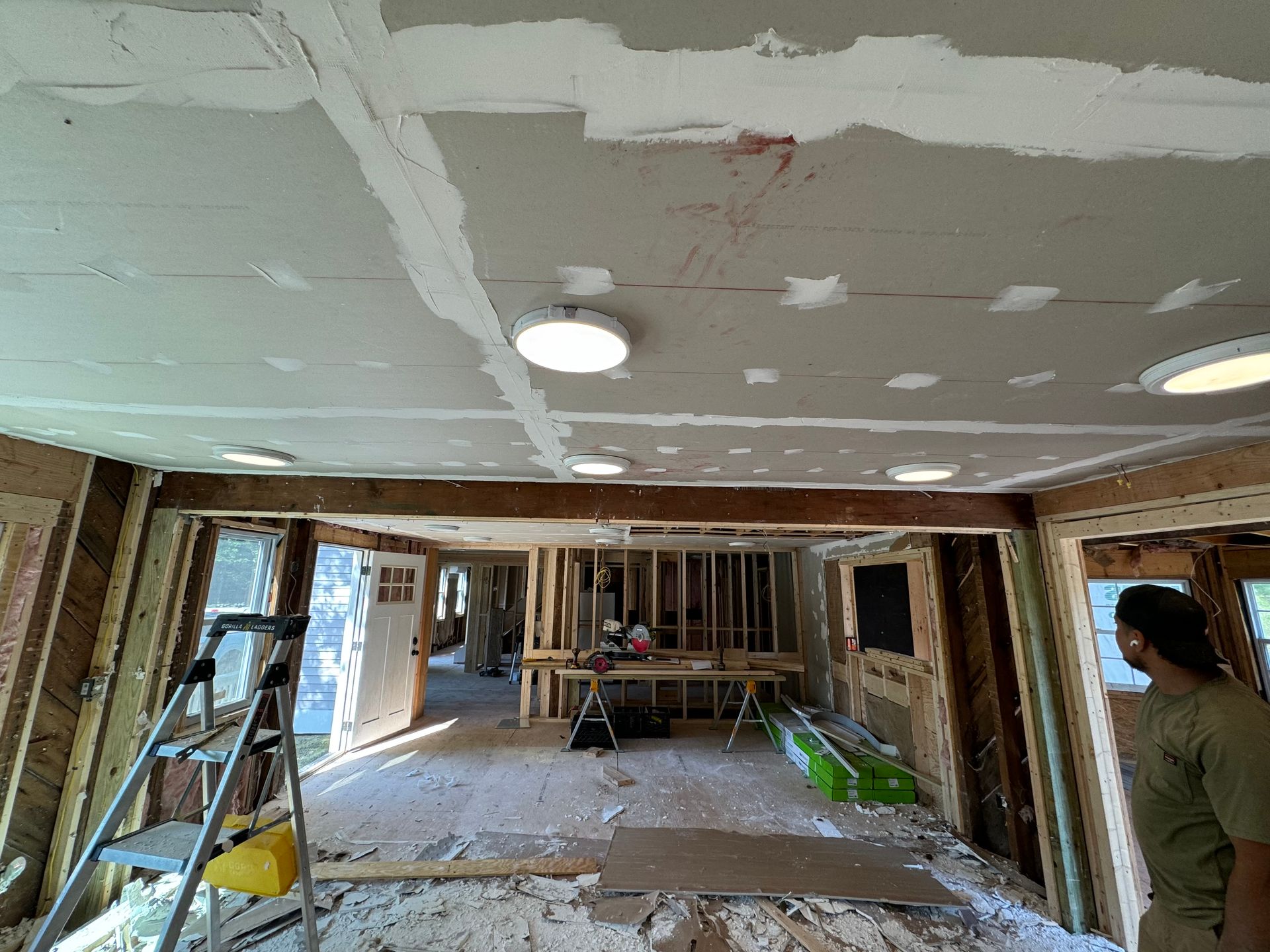Selling a Home with Mold in Massachusetts?
Share
Selling a Home with Mold in Massachusetts? Here's What You Need to Know
Mold is a common issue affecting many homes in Massachusetts. For homeowners and real estate investors, dealing with mold can be a significant concern, especially when it comes to selling a property. Mold not only affects the aesthetic appeal of a home but also poses health risks and can complicate real estate transactions.
This blog post aims to provide valuable insights into the process of selling a house with mold in MA. Whether you're a homeowner looking to sell your home or an investor eyeing a property, understanding how to handle mold issues can make all the difference.
Understanding Mold in Homes
What is Mold?
Mold is a type of fungus that thrives in damp, humid conditions. It spreads through airborne spores and can grow on various surfaces, including wood, drywall, and carpeting. In homes, mold often appears as black, green, or white patches and can emit a musty odor.
How Does Mold Spread?
Mold spreads through microscopic spores that float in the air. These spores can land on any surface, especially in areas with high moisture levels, such as basements, bathrooms, and kitchens. Once mold finds a suitable environment, it can grow rapidly, often within 24-48 hours. Factors like poor ventilation, leaks, and high humidity contribute to the spread of mold in homes.
Types of Mold Commonly Found in MA Homes
In Massachusetts, several types of mold are commonly found in homes. Black mold (Stachybotrys), Aspergillus, and Cladosporium are among the most prevalent. Each type has different characteristics and health implications, but all require prompt attention and remediation to prevent widespread damage and health risks.
The Legal Landscape in MA
Massachusetts Mold Disclosure Laws
When it comes to selling a house with mold in Massachusetts, the law requires sellers to disclose any known mold issues to potential buyers. Failure to do so can result in legal consequences and financial liabilities. It's crucial for sellers to be transparent about mold problems and take necessary steps to address them before listing their property.
Responsibilities of Sellers
Sellers are responsible for ensuring that their property is safe and habitable. This includes addressing mold issues through professional remediation services. If mold is present, sellers must either fix the problem or disclose it to potential buyers. Providing complete and accurate information about mold conditions can help avoid legal complications and build trust with buyers.
Responsibilities of Buyers
Buyers, on the other hand, should conduct thorough inspections and due diligence before purchasing a property. Hiring a qualified home inspector can help identify mold problems and assess the extent of the issue. Buyers have the right to request remediation from the seller or negotiate terms based on the mold findings.
Selling a House with Mold
Steps to Take Before Listing
Before listing a home with mold, sellers should take several important steps. First, it's essential to identify and address the source of moisture causing the mold growth. This may involve fixing leaks, improving ventilation, and using dehumidifiers. Next, professional mold remediation services should be employed to remove the mold and prevent its recurrence. Obtaining a clearance certificate from a certified mold inspector can provide evidence that the mold has been effectively treated.
Role of Professional Mold Remediation Services
Professional mold remediation services play a critical role in preparing a house for sale. These experts use specialized equipment and techniques to safely remove mold, clean affected areas, and restore the home to a healthy condition. By investing in professional remediation, sellers can increase the appeal of their property and ensure compliance with legal requirements.
Marketing a Home with Mold History
When marketing a home with a history of mold, transparency is key. Highlighting the steps taken to address and remediate the mold issue can reassure potential buyers. Providing documentation, such as inspection reports and remediation certificates, can demonstrate that the problem has been resolved and the home is safe for occupancy.
Buying a House with Mold
Identifying Mold Problems
For potential buyers, identifying mold problems early in the buying process is crucial. Signs of mold include visible patches, musty odors, and water stains. Buyers should also inquire about the property's history of water damage and mold issues. A professional home inspection can provide a comprehensive assessment and uncover hidden mold problems.
Assessing the Extent of Mold Damage
Once mold is identified, assessing the extent of the damage is the next step. This involves determining the size of the affected area, the type of mold present, and any structural damage caused by mold growth. Buyers should consult with mold experts to understand the scope of remediation needed and associated costs.
Negotiating Terms with Sellers
If mold is found in a property, buyers can negotiate terms with the seller. This may include requesting mold remediation before closing, negotiating a lower purchase price to cover remediation costs, or including mold-related contingencies in the purchase agreement. Clear communication and documentation are essential during this process.
Case Studies and Success Stories
Successful Mold Remediation and Sale
One example of a successful mold remediation and sale involved a historic home in Salem, MA. The property had significant mold issues due to long-standing water damage. The homeowner invested in professional remediation and obtained a clearance certificate. Despite the mold history, the transparency and evidence of remediation helped attract buyers, and the house sold at a competitive price.
Buyer’s Journey with a Mold-Affected Property
A real estate investor in Boston purchased a mold-affected property at a discounted rate. After thorough inspection and negotiation, the investor hired a reputable mold remediation company. The successful remediation, combined with strategic renovations, transformed the property into a desirable rental unit. The investor's proactive approach and willingness to address mold issues resulted in a profitable venture.
Lessons Learned from Mold Transactions
These case studies highlight the importance of transparency, professional remediation, and effective communication in mold-related real estate transactions. Both sellers and buyers can achieve successful outcomes by addressing mold issues head-on and leveraging expert services.
Get Cash For Your Home Now!
Selling or buying a house with mold in Massachusetts presents unique challenges, but with the right approach, it can be managed effectively. For homeowners and real estate investors, understanding the legal landscape, taking necessary remediation steps, and maintaining transparency are crucial. By doing so, you can navigate the complexities of mold in real estate transactions and achieve successful outcomes.
If you’re dealing with mold issues in a property you intend to sell or buy, consider seeking professional advice to ensure compliance and safety. And if you have experiences or tips related to mold in real estate, we’d love to hear from you—share your story and join the conversation.
For more information on how to handle mold in real estate, or to get started with professional mold remediation, visit our website and connect with our experts today.




































































